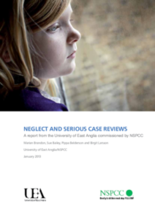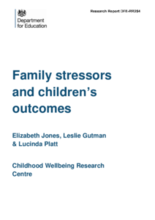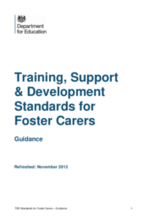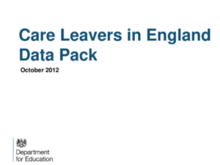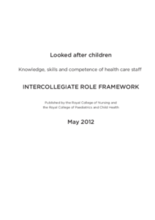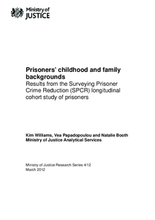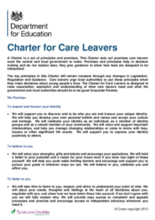Displaying 1111 - 1120 of 1177
This study provides a new contribution to our learning about neglect by exploring the circumstances in which neglect can be catastrophic and have a fatal or seriously harmful outcome for a child. It provides a systematic analysis of neglect in serious case reviews in England, between 2003 and 2011.
This new study from the Childhood Wellbeing Research Centre, an independent research center with funding from the United Kingdom Department for Education, identifies which family stress factors and parental behaviors are associated with positive and negative outcomes for children at the age of 7 and whether stressful life events experienced in childhood are associated with negative outcomes in adolescence.
The Training, Support and Development (TSD) standards form part of a foster carer's induction into the role. They provide a national minimum benchmark that sets out what foster carers should know, understand and be able to do within the first 12-18 months after being approved.
In this TED Talk, poet and playwright Lemn Sissay tells his story of growing up in foster care in the UK.
This data pack, produced by the Department for Education, aims to summarize national data about children who leave care aged 16 and over and outcomes of care leavers at age 19. The pack was also developed to help local authorities to compare their performance with others and to investigate issues such as age of leaving care and placement stability on the outcomes of care leavers.
The chapters in this book discuss the complexity immediately encountered when approaching the task of improving the lives of Looked After Children (LAC).
This paper presents findings from the first-ever study of kinship care in the UK using census micro data.
This document provides an outline for the competencies, training and skills needed by healthcare staff to work with looked after children at different professional levels in the UK. It recognizes that all health staff should have access to appropriate training, learning opportunities, and support to fulfill their roles and responsibilities, particularly when it comes services provided to looked after children.
This report presents findings of a study on the childhood and family backgrounds of 1,435 participants who were newly incarcerated in 2005 and 2006 in the United Kingdom. The report has a special focus on the experiences of abuse and care placement in childhood.
This Charter lists the promises that care leavers want the central and local governments to make. The Charter for Care Leavers is designed to raise expectations, aspirations and understanding of what care leavers need and what the government and local authorities should do to be good “Corporate Parents.”

